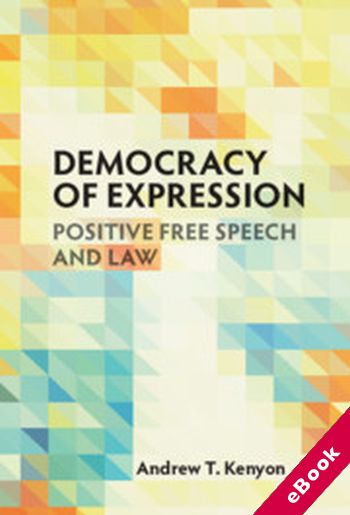
The device(s) you use to access the eBook content must be authorized with an Adobe ID before you download the product otherwise it will fail to register correctly.
For further information see https://www.wildy.com/ebook-formats
Once the order is confirmed an automated e-mail will be sent to you to allow you to download the eBook.
All eBooks are supplied firm sale and cannot be returned. If you believe there is a fault with your eBook then contact us on ebooks@wildy.com and we will help in resolving the issue. This does not affect your statutory rights.
ree speech has positive dimensions of enablement and negative dimensions of non-restraint, both of which require protection for democracy to have substantial communicative legitimacy. In Democracy of Expression, Andrew Kenyon explores this need for sustained plural public speech linked with positive communicative freedom. Drawing on sources from media studies, human rights, political theory, free speech theory and case law, Kenyon shows how positive dimensions of free speech could be imagined and pursued. While recognising that democratic governments face challenges of public communication and free speech that cannot be easily solved, Kenyon argues that understanding the nature of these challenges (including the value of positive free speech) at least makes possible a democracy of expression in which society has a voice, formulates judgments, and makes effective claims of government. In this groundbreaking work, Kenyon not only reframes how we conceptualize free speech, but also provides a roadmap for reform.